
by ERIC DUHATSCHEK
From the Globe and Mail, Monday August 20, 2007
(Robert L Note: I've reprinted this Duhatschek article to archive it - it is so interesting! Simply linking to pieces from online newspapers is tricky. Often the link disappears after a month, and you can only gain access it through subscription. I didn't want this to happen here.)
The year was 1971. Sam Pollock, the legendary Montreal Canadiens general manager/horse trader, had already manoeuvred his way into the top pick in the National Hockey League's amateur draft, giving him the opportunity to select Guy Lafleur, a future Hall of Famer.
But he wanted more.
"The two best juniors by a mile that year were Lafleur and Marcel Dionne," recalled Scotty Bowman, one of the many Pollock protégés who went on to have fabulously successful NHL careers. "The night before the draft, we met for three hours and Sam grilled everybody in the room - Al MacNeil, Ronnie Caron, Claude Ruel and a couple of scouts - What should they do with Lafleur and Dionne?
"Then he excused himself and made a call to Ned Harkness, in Detroit, to propose a trade. The Canadiens had just won the Stanley Cup in '71 and Sam offered Detroit Phil Myre, plus either Terry Harper or J. C. Tremblay and something else, to get the second pick. And Detroit was going to do it, because they were going to get three players who could help them.
"I remember Sam came back in the room and said, 'If I make this deal, could it be another [Jean] Béliveau and [Bernie] Geoffrion for 10 years?' But nobody would stand up and say yes, so he didn't make the deal - because that's how Sam worked. If there were five people in the room, he would never do anything until he talked all five people into doing what he wanted to do.
"But that's how Sam operated. If there were two great players in the draft, he wouldn't be satisfied with saying, 'I'm getting Lafleur, to hell with Dionne.' He wanted them both."
Mr. Pollock left an unmatched legacy as an NHL wheeler-dealer. In 14 years as the Canadiens' general manager, he was at the helm for nine Stanley Cups. But, as Mr. Bowman pointed out, Mr. Pollock joined the Canadiens organization in 1947 and spent 17 years working behind the scenes in player development before getting promoted to GM - counted this way, he had his fingerprints on a total of 15 Stanley Cups in a 31-year span.
"The best way I can say it is, when all the rest of us were standing at the corner, waiting for the light to change, Sam was already three blocks down the street," said Frank Selke Jr., whose father gave Mr. Pollock his first job in the Canadiens organization.
Mr. Pollock, known as Sad Sam because of his dour visage, forged his reputation as a result of the many out-and-out thefts he completed. But the seeds of his success were sewn much earlier, when he joined the organization at 19 as an assistant coach with the 1945-46 Junior Canadiens.
He was hired largely because of his teenaged success managing a softball team made up mostly of Canadiens players, some of whom were 10 years older than him. Mr. Selke's father was impressed with the way Mr. Pollock handled people, even at that age.
Mr. Pollock would eventually succeed the senior Mr. Selke as Canadiens GM, and was later chairman of the Toronto Blue Jays between 1995 and 2000. His love for and knowledge of baseball was as great as his love of hockey, according to the younger Mr. Selke.
"On a scale of 1 to 10, if Sam was a 10½ in hockey, he was an 11 in baseball," he said. "... Sam would talk about baseball far more than he would talk about hockey. He'd say, 'I don't want to talk about hockey because then you'll know what I'm thinking and I don't want people to know what I'm thinking.' "
Mr. Pollock was intensely private. He would watch the Canadiens play from Section 66 in the old Forum - the highest part of the building.
He took over from Mr. Selke in 1964, three years before an ambitious expansion doubled the NHL from six teams to 12. Because Mr. Pollock sat in on board of governors meetings as an alternate, he understood the ins and outs of the process far better than his peers - a primary reason why the Canadiens flourished in the first decade after expansion.
Long-time NHL general manager Cliff Fletcher, who got his start in the Montreal organization under Mr. Pollock, called him "one of the architects of expansion" and said the Canadiens' success in the 1970s "was the result of Sam doing a better job than the other five general managers at the time when expansion came around, and parlaying fringe-line assets into futures."
His most memorable deal came on May 20, 1970, when he traded a pair of future NHL journeymen, Ernie Hicke and Chris Oddliefson, to the Oakland Seals for François Lacombe and the rights to Oakland's first pick in the 1971 draft, which he used to get Mr. Lafleur.
"It was the steal of steals," said former Canadiens player and coach Al MacNeil, who was the playing coach for Montreal's minor-league affiliate in Houston, where Mr. Hicke played. "Ernie was a tough, hard-working journeyman left-winger, but he wasn't going to be a star in the NHL."
It was also the year that Mr. Pollock traded a personal favourite, Ralph Backstrom, to the Los Angeles Kings, bolstering their chances of finishing ahead of Oakland and guaranteeing the top pick to Montreal. (Mr. Bowman, however, said Mr. Pollock always insisted that part of the story was fiction.)
Mr. Bowman first met Mr. Pollock in 1947, as a 14-year-old in his first year of midget hockey in Verdun. The Canadiens decided to put a second midget team in the small Quebec community and Mr. Pollock asked Mr. Bowman to switch sides.
"Sam said if I wanted to play for the midget Canadiens, I'd get a pair of pants, a pair of gloves and a pass to the Forum," Mr. Bowman said. "So it was a pretty easy decision to make."
He played in the organization until an eye injury prematurely ended his career. Mr. Pollock offered him his first full-time coaching job in 1956, when Mr. Bowman was working for a paint company and moonlighting as a Junior B coach on the side.
"Sam asked me, 'How much money do you make at the paint company?' I said, 'It's not bad, I'm making $3,800 a year.' He said, 'Well, this job pays $4,200.' He added about a 10-per-cent raise. I've always thought, 'I should have told him I made $4,800.' But I didn't care what they paid me. I just wanted to get my first job.
"He was a shrewd businessman. Even in the sixties and seventies, he believed the best player on the team had to make the most money and the second best should be paid the second most. It's really hard to do, and even in that era, it wasn't easy."
Mr. Pollock also relied on a vast network of trusted lieutenants sprinkled across professional leagues around North America, helping him make numerous trades that proved embarrassingly one-sided in Montreal's favour. Mr. MacNeil recalled a lesser-known example from 1969, when he was still working in Houston.
"We used to play Fort Worth all the time and they had Peter Mahovlich, who belonged to Detroit," said Mr. MacNeil. "He was one guy who really impressed both me and Ronnie Caron and we'd badger Sam and say, 'You've really got to keep an eye on this guy.' That year, Detroit called him up but didn't play him much, so the next spring, we ended up trading Doug Piper and Gary Monahan for Peter Mahovlich - who was a superstar for the next seven years with the Canadiens [and helped them win four Stanley Cups in that span]."

Mr. Bowman recalled an occasion when both he and Mr. Fletcher, who were handling the Canadiens' junior operations in 1963, had to confess to Mr. Pollock about an oversight they'd made relating to a then-unknown defenceman named Serge Savard.
That summer, the Canadiens had decided to drop the teenaged Mr. Savard from their protected list, but no one remembered to call him to deliver the bad news. September rolled around and Mr. Savard showed up at his boarding house in Montreal and called Mr. Fletcher at the Forum, looking for book money and room and board.
"Cliff came running to me and said, 'Remember that guy Savard? He's back in Montreal.' And we looked at each other and said, 'Well, Cliff, we got to go in and see Sam and tell him the truth.' So we both went in and said, 'Sam, we've got a real problem with Savard.' Right away, Sam jumped in and said, 'He's not here, is he?' We said, 'That's the problem, he is here.'
"And Sam said, 'Oh no, he wasn't on the list, you've got to send him home.' But we kind of liked Serge, so Cliff said, 'Sam, can we give him a chance until Christmas?' because Cliff knew some other guys in the league needed players and one was Doug Harvey's brother, Alf. Anyway, Sam said 'Okay, but only until Christmas, and if he's not cutting it by then, he's got to go home.'
"To make a long story short, by Christmas, Savard was playing great and had made the Junior Canadiens. But we were so afraid to tell Sam what happened. Of course, Savard's a Hall of Famer now. Sometimes, you've got to be lucky too."

Mr. Bowman left the Canadiens in 1966 to join the expansion St. Louis Blues, but returned after Montreal won the 1971 Stanley Cup, with Mr. MacNeil behind the bench. He stayed for eight seasons, winning five of his record nine Stanley Cups as a coach in that span.
"Sam had some very strange rules," Mr. Bowman said. "We weren't supposed to leave the Forum after practice until we stopped by his office. I would say 75 per cent of the time, his secretary would come out and say, 'Sam said go on, he doesn't need to see you today.' But he just wanted to know what was going on. He didn't watch many of the practices because he was so busy and he didn't go to a lot of the road games because he didn't like to travel, so we had to call him after every single game."
Mr. Pollock's keen interest in the business side of the operation led to what seemed like a premature departure from the game in 1978, at 53. The Canadiens were in the midst of another streak of four consecutive Stanley Cups, but he bowed out to join Carena Bancorp Holdings, part of the financial empire controlled by Canadiens owners Peter and Edward Bronfman, who were in the process of selling the team.
More than a dozen players from the Pollock era went on to become coaches and general managers in the NHL, including Mr. Bowman, Mr. Fletcher, Mr. MacNeil, Mr. Gainey, Jacques Lemaire, Doug Risebrough, Réjean Houle and others. Ken Dryden eventually became president of the Toronto Maple Leafs.
"The measure of Sam Pollock is he won nine Stanley Cups in 14 years," Mr. MacNeil said. "You can't even begin to fathom how difficult that is. What happens in any successful organization is that a cynicism creeps into the dressing room. Indifference can build up and you've got to guard against that if you want to be competitive year after year.
"For Montreal to keep winning on a continuous basis, that was the same as the New York Yankees in baseball. It was all because of Sam Pollock's driving force. There was a sombre quality to him at times, but he was a good person - his word was solid. He was an original - and you'll not see his like again."










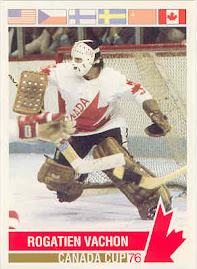
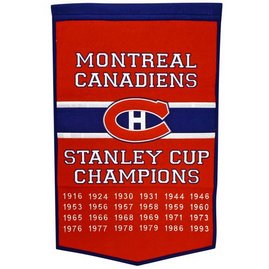







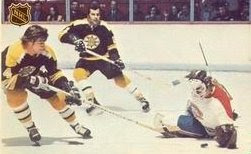



















































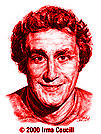



































































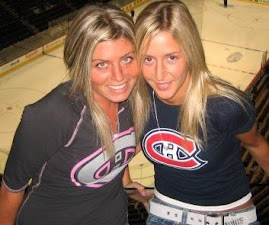
















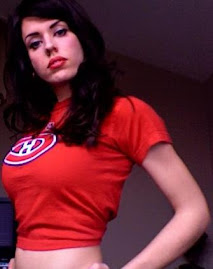

1 comment:
Take that lens in the same niche and stick it....
Post a Comment